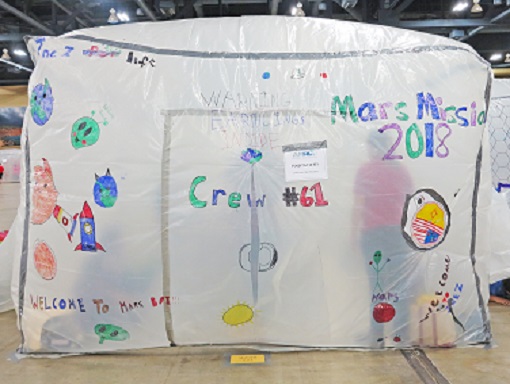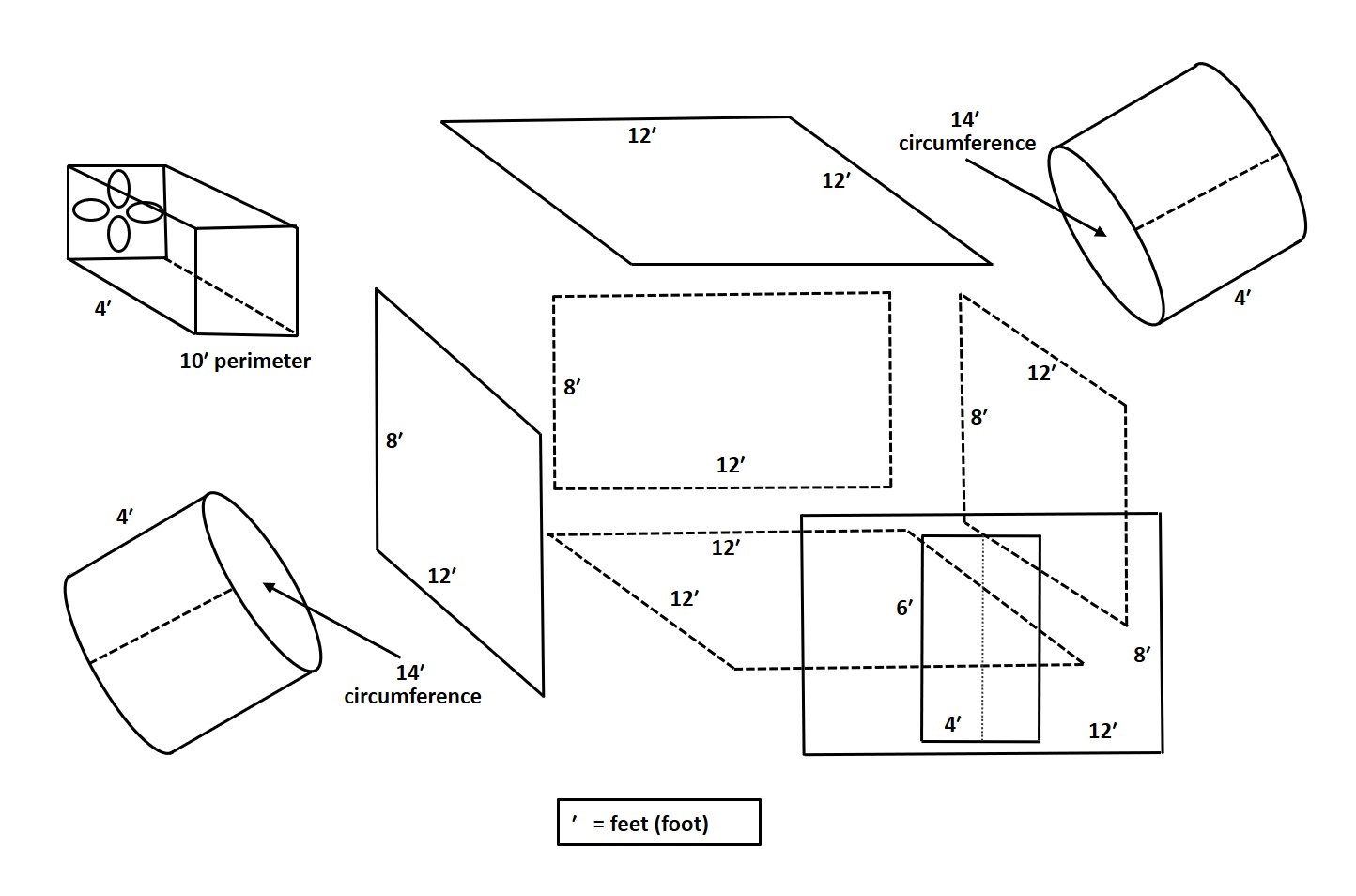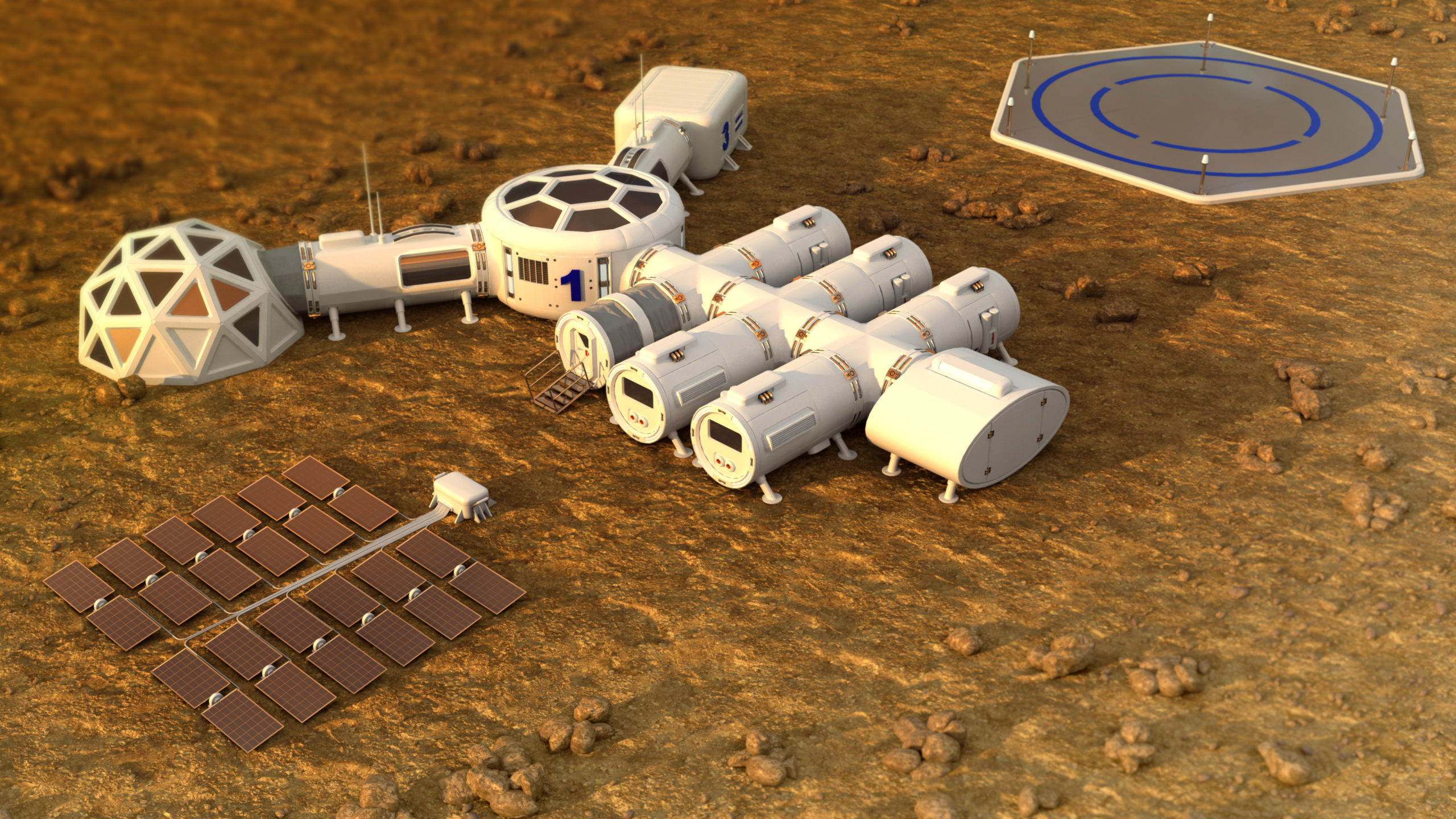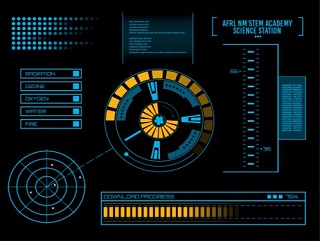Habitat Design
As you’ve been studying facts about Mars, you have probably been thinking about what it would be like to live on Mars. Where would you live? What would your habitat (“house”) look like?
How would you build a habitat on Mars that:
Protects you from the harsh Martian environment
Will accommodate all 8 life support systems
Can be built using materials that you either bring with you or find on Mars
Let’s look at some habitat ideas that others have imagined.
Martian Habitat Designs
Inflatable Habitat Investigation

One idea for the design of a shelter on Mars is an inflatable habitat. For this investigation, you will build a model of an inflatable habitat design that is shaped like a rectangular prism.
The diagram shown depicts an inflatable habitat design that has been deconstructed. The floor and ceiling are squares, and the four walls and air lock are rectangles. Dimensions of each part of the habitat are provided.

The two circular connecting tunnels and fan tunnel are also rectangles. These rectangles have been shaped into three dimensional tunnels by fastening their ends together.
Watch the Cutting and Building a Full-Scale Inflatable Habitat video to see how to cut out and assemble the plastic pieces for a full-size habitat.
Cutting and Building a Full-Scale Habitat Video
The dimensions in the design diagram above are for a life-sized habitat. You will be building a scale model inflatable habitat as one of your mission tasks. How do you find the dimensions of a desktop-sized habitat model that has the same shape? Watch the Designing a Scale Model video to find out.
Designing a Scale Model Video
Build a scale model inflatable habitat using the design diagram above and the scale: 1 inch equals 1 foot. Watch the Building an Inflatable Habitat Model video for more details.
Building an Inflatable Habitat Model Video
Now it’s your turn to design a habitat.
As you work on your design, some other requirements you might consider include:
Separate living quarters and work areas
A way to get in and out
Away to link to other habitats or expand the colony
Sketch a blueprint of your design in your Mission Journal and include labels explaining the design.
If you would like to, you can build a desktop model of your design using simple materials you have on hand. Some examples are cardboard, construction paper, or even items that you throw away like packaging from everyday items you use.


